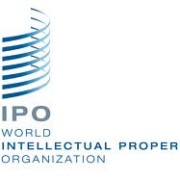Trademark Applications for Slogans will be Examined Exactly as Any Other Mark
The Israeli Trademark Registrar has issued a new regulation regarding the eligibility of slogans as registrable trademarks. According to the Trademark Registrar, registration applications for slogans will be examined exactly as any other mark and will not be considered as lack of distinctive character.
Israeli Trademark office circular no. 29 states that for a Slogan to be registered as a mark, it must acquired a distinctive character based on actual use in the market, and it must link the goods or services to their source. Nevertheless, the circular does not exclude slogans completely from being a registrable subject matter.
On December 8 2011, the District Court of Tel Aviv has ruled in the case of Eveready Battery Company Inc V. Registrar of Patents (21488-05-11), that the examination of a slogan should be the same as any other mark, without the prior assumption that a slogan lack of distinctive character by its nature .
This decision was given in an appeal of decision of the Trademark Registrar in which he denied the trademark application FREE YOUR SKINon the basis of lack of distinctiveness.
Accordingly, the Trademark Registrar has ordered that the circular no. 29 is cancelled.






